All scientific research from the Digital Inclusion Lab at a glance

DANN in samenwerking met het Digital Inclusion Lab
In samenwerking met de Digitale Academie Noord-Nederland (DANN), een online platform dat het aanbod aan opleidingen digitale vaardigheden in Noord-Nederland inzichtelijk maakt, heeft het Digital Inclusion Lab meerdere onderzoeken uitgevoerd. Deze zijn hier te vinden.
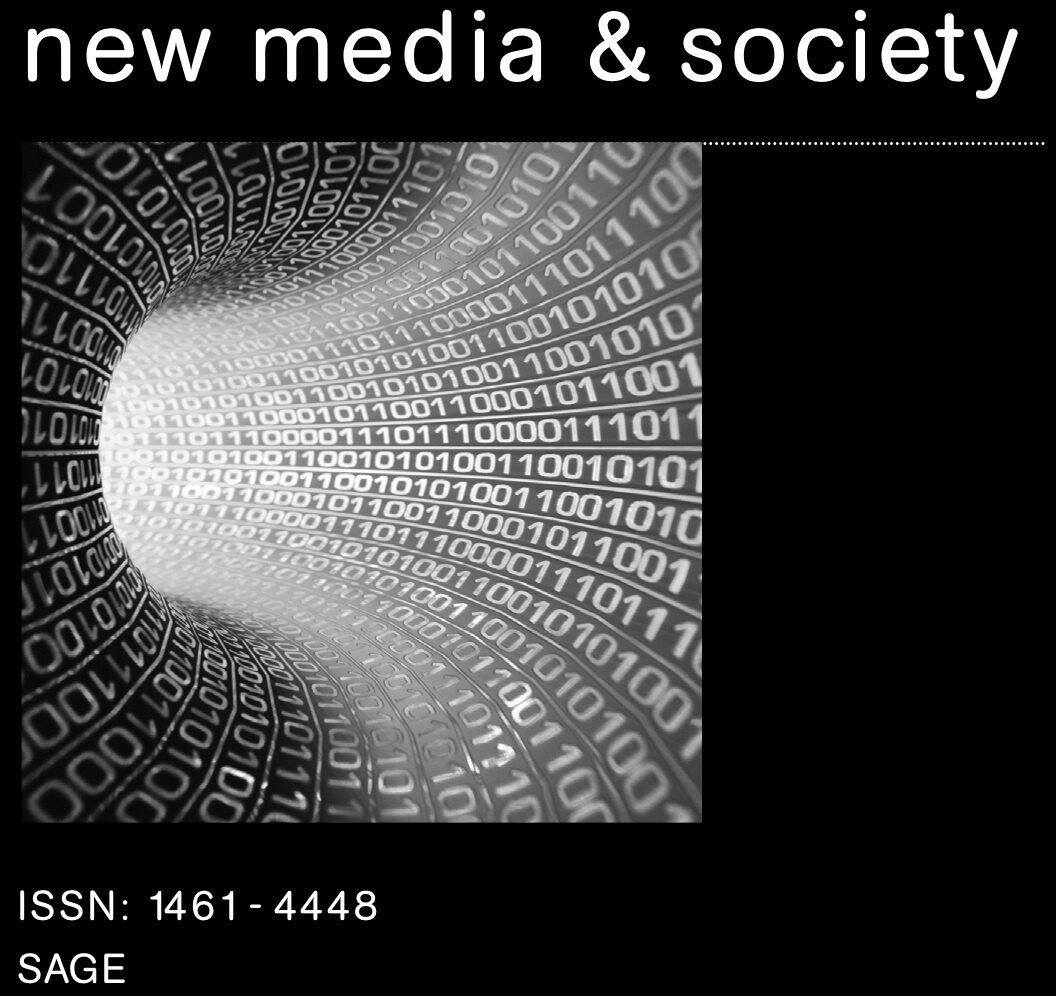
Bypassing Digital Literacy: Marginalized citizens’ tactics for participation and inclusion in digital societies
Research by Alexander Smit, Joëlle Swart and Marcel Broersma on low-literate people's tactics for digital participation was recently published in the journal New Media & Society. For more information, click here.
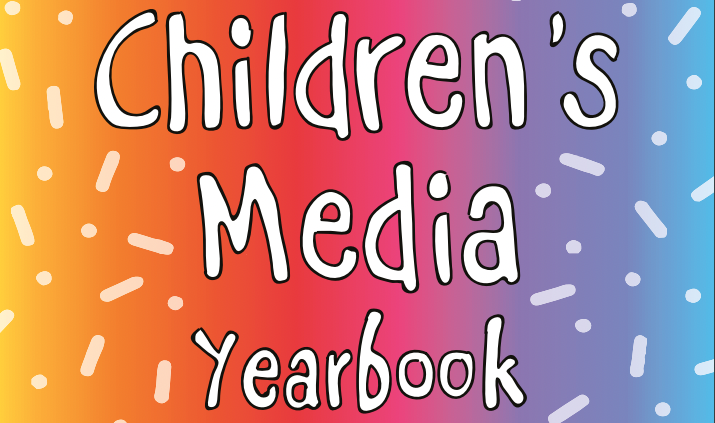
‘Scary, But Fun’: Children’s Explorations Of Digital Risky Play
The "Children's Media Yearbook 2023" was recently released. In this book, researchers Denise Mensonides, Dr. Anna Van Cauwenberge and Prof. Dr. Marcel Broersma have published a chapter on how children explore digital risks through play.
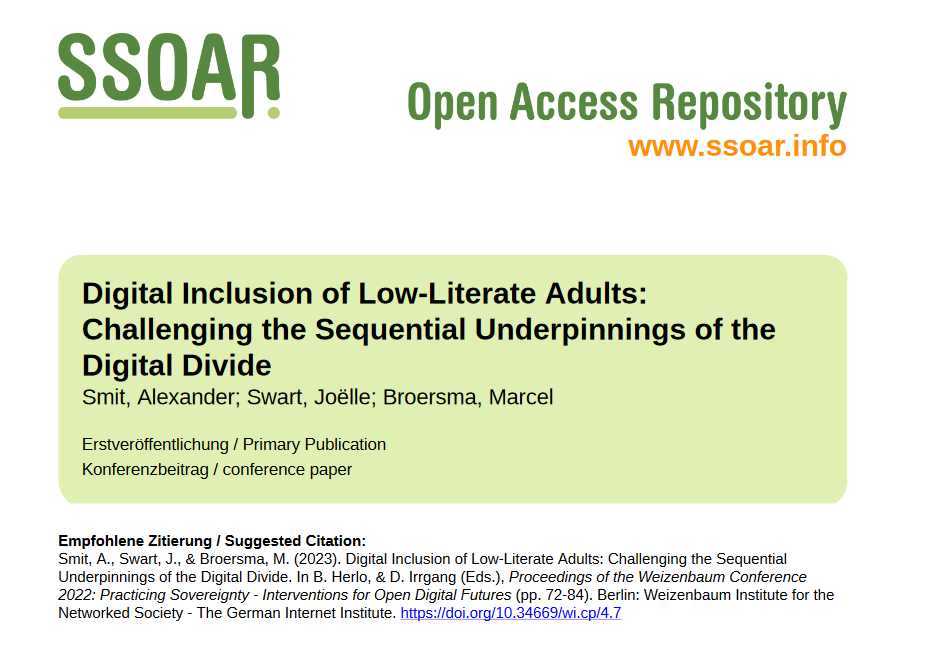
Digital Inclusion of Low-Literate Adults: Challenging the Sequential Underpinnings of the Digital Divide
Recent publication of the article 'Digital Inclusion of Low-Literate Adults: Challenging the Sequential Underpinnings of the Digital Divide'. The article focuses on contemporary models of digital inclusion and the digital divide, problematizing them in relation to everyday digital practices of low-literate Dutch citizens.
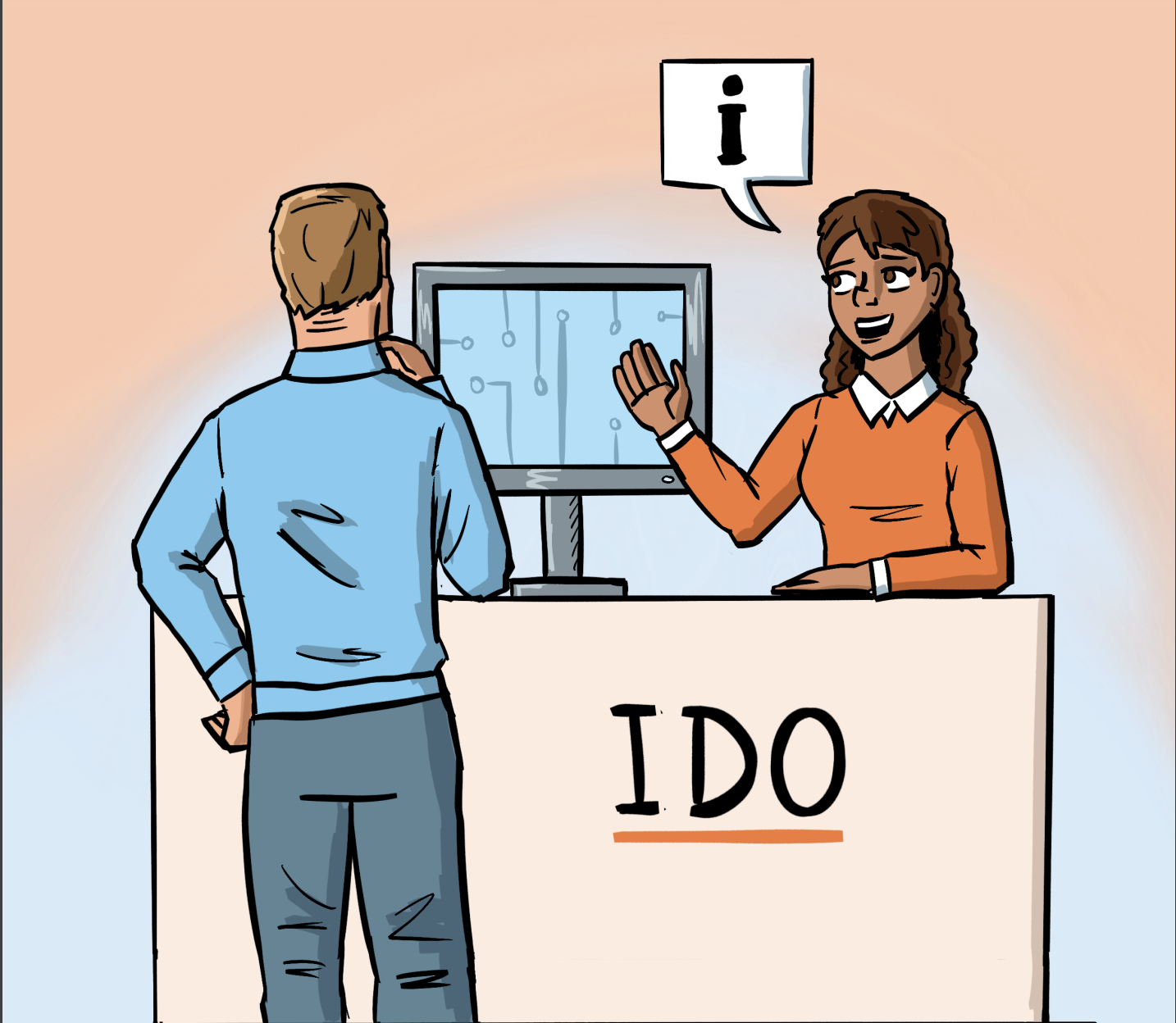
Digital literacy in the library: Promoting digital inclusion and participation
This report presents the conclusions of the research project "Digital Literacy in the Library. The purpose of this pilot was to gain insight into: (a) from the citizen's perspective: digital-low-literate people's expectations of digital assistance in the library and how they relate to the expectations of library staff and organizations; (b) from the library: possible barriers preventing participation of digitally low literate people in these activities and how libraries can further increase participation in these programs.
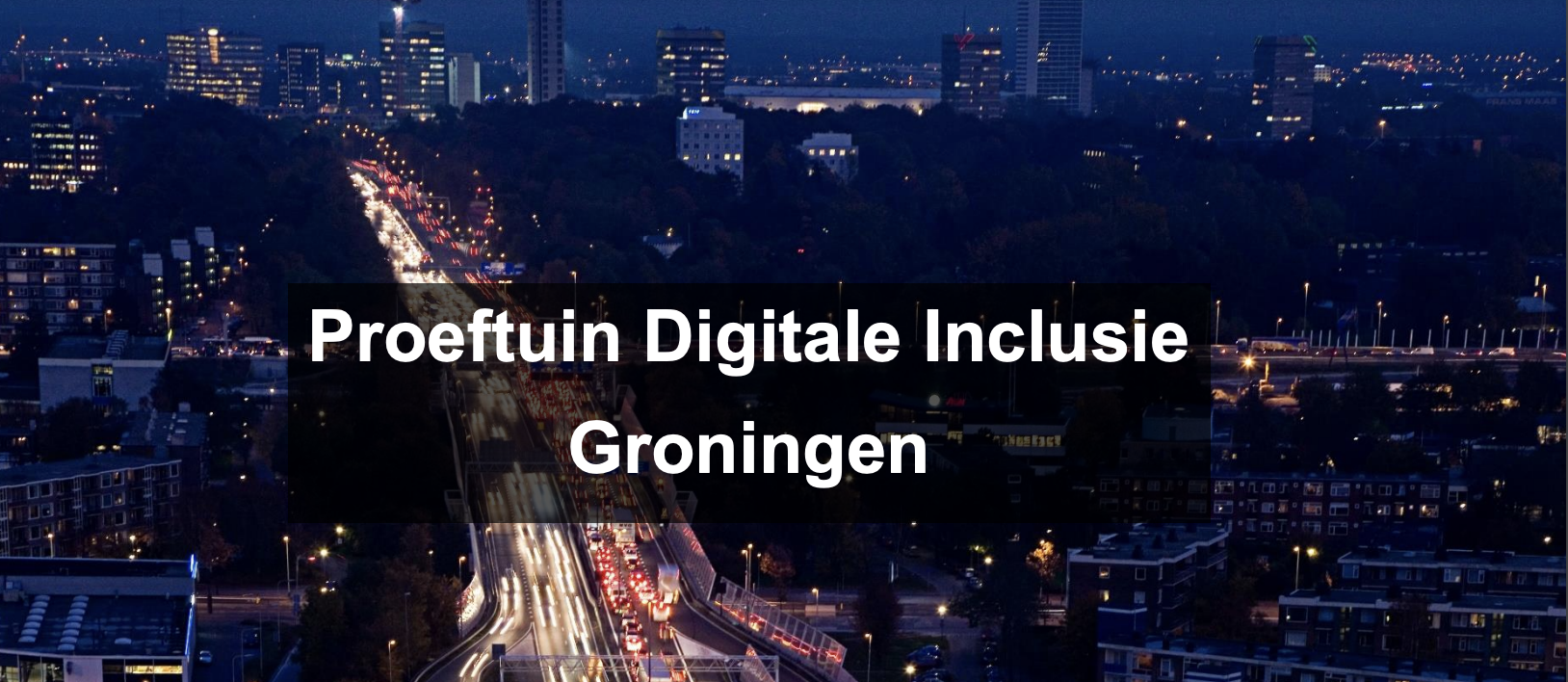
Pilot Digital Inclusion Groningen
This report reports on findings from the Digital Inclusion Pilot conducted in Groningen in 2019-2021. The pilot is a result of the collaboration between the University of Groningen, the municipality of Groningen, Alfa College and the Stichting Kinderopvang Stad Groningen (SKSG). We explore four work packages in this report, focusing on a research framework for digital literacy and inclusion, the development of digital literacy within the family and in education, and the central question of what factors promote or hinder the development of digital literacy within formal and informal education.